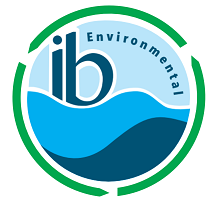Prepaid Water in Blakely, GA - A Case Study
Screenshot of Customer Portal
By Stacey Isaac Berahzer and Guest Author, Melinda Crook
The City of Blakely in southwest Georgia has a population of a little over 5,000. It is a full-service city, in that it provides electricity, water/sewer, garbage and gas utilities to its citizens. Each month the City bills approximately 2,600 customer accounts. A few years ago, the City learned from a neighboring utility about the option to have a customer pay in advance for utility services, and have those services automatically shut off if there are no funds left in that customer’s account. Blakely first investigated the pre-paid utility option mainly for the electricity side of their services. However, they realized that it could conveniently incorporate all of the utility services the City provided. Could this option of prepaying for utility services benefit their low-income customers and reduce shut-offs?
Blakely chose to set-up their pre-paid program where a customer must provide a $50 amount in their account in order to activate the pre-paid services. For a customer with bad credit history, the deposit for a traditional billing arrangement would be up to $425, (if the customer also has gas service with the City). Besides this $50 start-up amount, a customer must also provide a cell phone number and an email address in order to enroll in the prepaid program. One indirect benefit to a customer with bad credit history is that there is no credit check with the prepaid option. More credit checks usually mean a further negative effect on credit scores.
Previous Unpaid Balance
An existing customer with an unpaid balance can roll this balance into a prepaid service, as long as the balance is not more than one month of unpaid utility bills with the City. The customer can then set-up a schedule for paying off the balance. For example, a common approach is that 25% of every new payment amount goes towards this unpaid balance until it is paid off. This has helped the City to catch up on unpaid debt.
Setting Up Payment Options
A prepaid customer has several options for adding money to their account. Forms of payment include cash, money order and cashier’s checks (but, no personal checks). Customers can go in person to City Hall, pay via MoneyGram or make a payment online. The online aspect of the prepaid services is a key feature. It allows the customer to keep careful track of not only how much money is left on their account, but also how much usage the customer has in terms of kilowatt hours and gallons. An app that is available online, even on a smart phone, that provides daily usage and notifications is a feature of prepaid metering that some customers report appreciating. Notifications include a daily balance email and a low balance text and email. The utility decided to set the system to send the low balance messages when the customer’s funds get to $15 or less.
The customer gets to choose their payment amounts. The system does not dictate the amount a customer needs to pay unless the account is pending disconnection, or has already been disconnected. In the latter case, the system will instruct the customer as to how much needs to be paid in order to reconnect services. Customers have provided feedback to the City that it is easier for them, for example, to come up with $5 per day, as opposed to $300 at one point in the month. The customer gets to choose if they will be making their payments daily, weekly, bimonthly or even monthly.
Not a Panacea
This option of pre-paid metering is not a panacea for low-income affordability issues. In fact advocacy groups say that pre-paid utility service is not common in developed countries because, despite the technological advances, “it remains a second-class service with utility and vendor proponents preying upon financially-strapped households.” It also requires Advanced Metering Infrastructure (AMI) with a remote disconnect feature.
In the case study of Blakely, anecdotal reports indicate that customers are choosing the pre-paid option because of financial issues, as well as a desire to more closely monitor their use. In theory, pre-paid billing can help some customers repair their credit since there is no credit check involved, as opposed to the more traditional deposit-method of starting service. Being on prepaid also means that the customer cannot be penalized with late fees and shutoff fees. For instance, under the traditional approach, Blakely would charge a 10% late fee and a $25 shutoff fee. Such fees tend to set financially-stressed customers back even more. Some customers have noticed how using a certain appliance caused their bill to spike and have opted not to use those appliances in order to lower their bills. This close tracking of usage that the app allows means that customers have more control and can manage their use and find leaks etc. more quickly, also saving them money.
This is part of a blog post series funded by the Georgia Environmental Finance Authority (GEFA).
Disclaimer: The opinions of the writers should not be considered legal advice or endorsement by GEFA.

